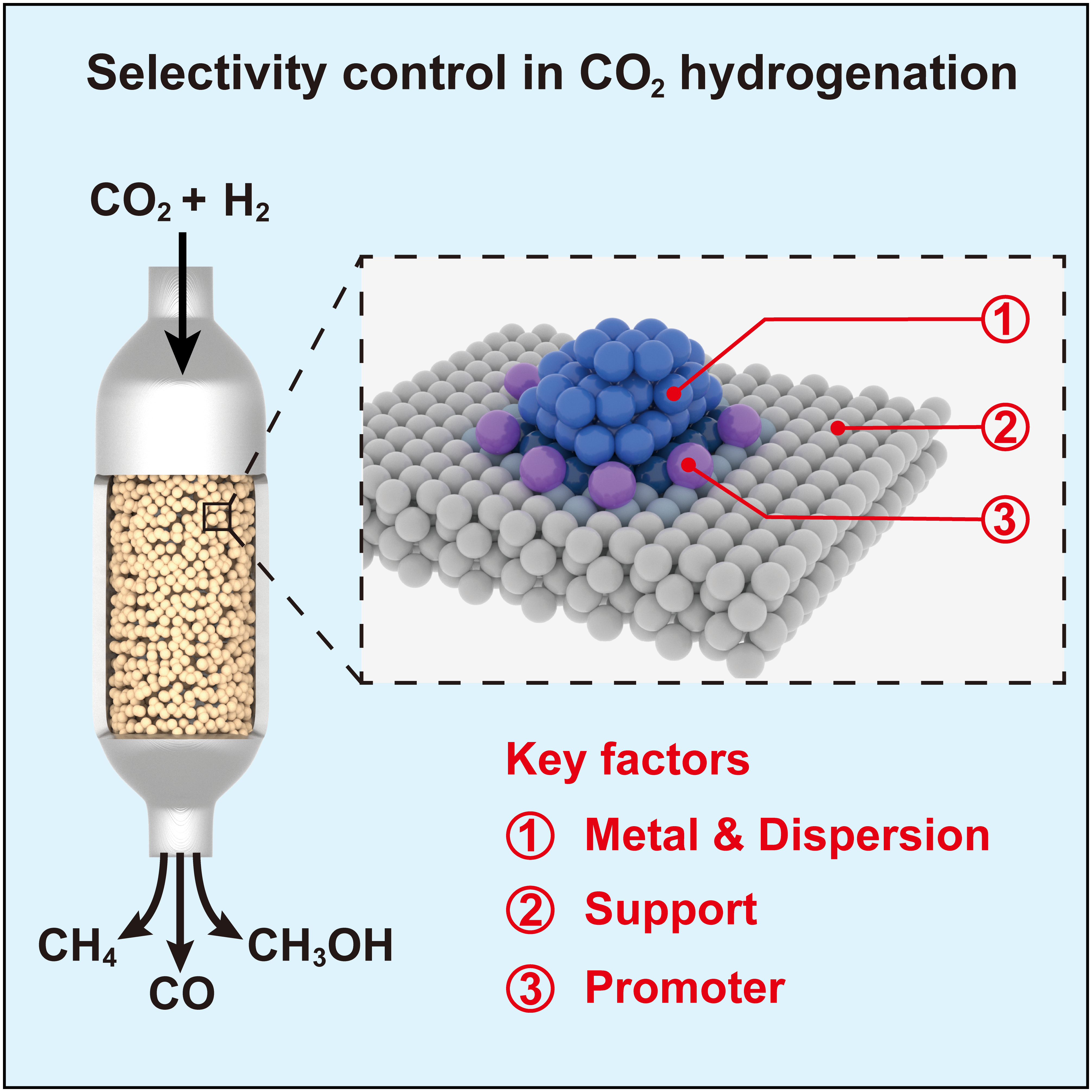The hydrogenation of carbon dioxide (CO2) to value-added chemicals offers a promising route for alleviating the energy crisis and climate warming. Highly selective CO2 hydrogenation is of great significance for reducing costs of separation and circulation and enhancing production efficiency but remains a great challenge. Recently, a research group led by Prof. DENG Dehui from the Dalian Institute of Chemical Physics (DICP) of the Chinese Academy of Sciences (CAS) was invited to review selectivity control in CO2 hydrogenation to one-carbon (C1) products.
The review article was published in Chem on March 11.

Key factors in catalyst design for selectivity control in CO2 hydrogenation (Image by HU Jingting and CAI Yafeng)
“We have been devoted to the research in catalytic conversion of C1 molecules for many years. We have deeply recognized that the fine-tuning of the product selectivity is a key but challenging task in this field.” said Prof. DENG.
The review article concentrated on the production of one-carbon (C1) products including methanol, CO, and CH4 from CO2 hydrogenation, which are the simplest CO2 hydrogenation products and the basic and important chemical building-block molecules that can be converted into high value-added chemicals or fuels via mature industrial processes.
Based on the recent progresses of different catalyst systems, the authors discussed the multi-factors affecting the product distribution of CO2 hydrogenation, with a particular focus on catalyst design.
They provided insights into the selection of active metals, the adjustment of metal dispersion, the optimization of support, and the introduction of promoters as general rules that can guide the rational design of high-selectivity catalysts for CO2 hydrogenation.
They concluded the review by putting forward some challenges that remain to be solved, and highlighting the future opportunities of CO2 hydrogenation.
“Recently, enormous progresses have been achieved in the field of CO2 hydrogenation. We aim to inspire deeper fundamental understanding and further breakthroughs in the selective hydrogenation of CO2 to specific products.” said Prof. DENG.
This work was supported by the National Key R&D Program of China, the National Natural Science Foundation of China, the Strategic Priority Research Program of Chinese Academy of Sciences, and the China Postdoctoral Science Foundation.
Link: https://dicp.cas.cn/xwdt/kyjz/202403/t20240318_7036690.html
https://doi.org/10.1016/j.chempr.2024.02.017